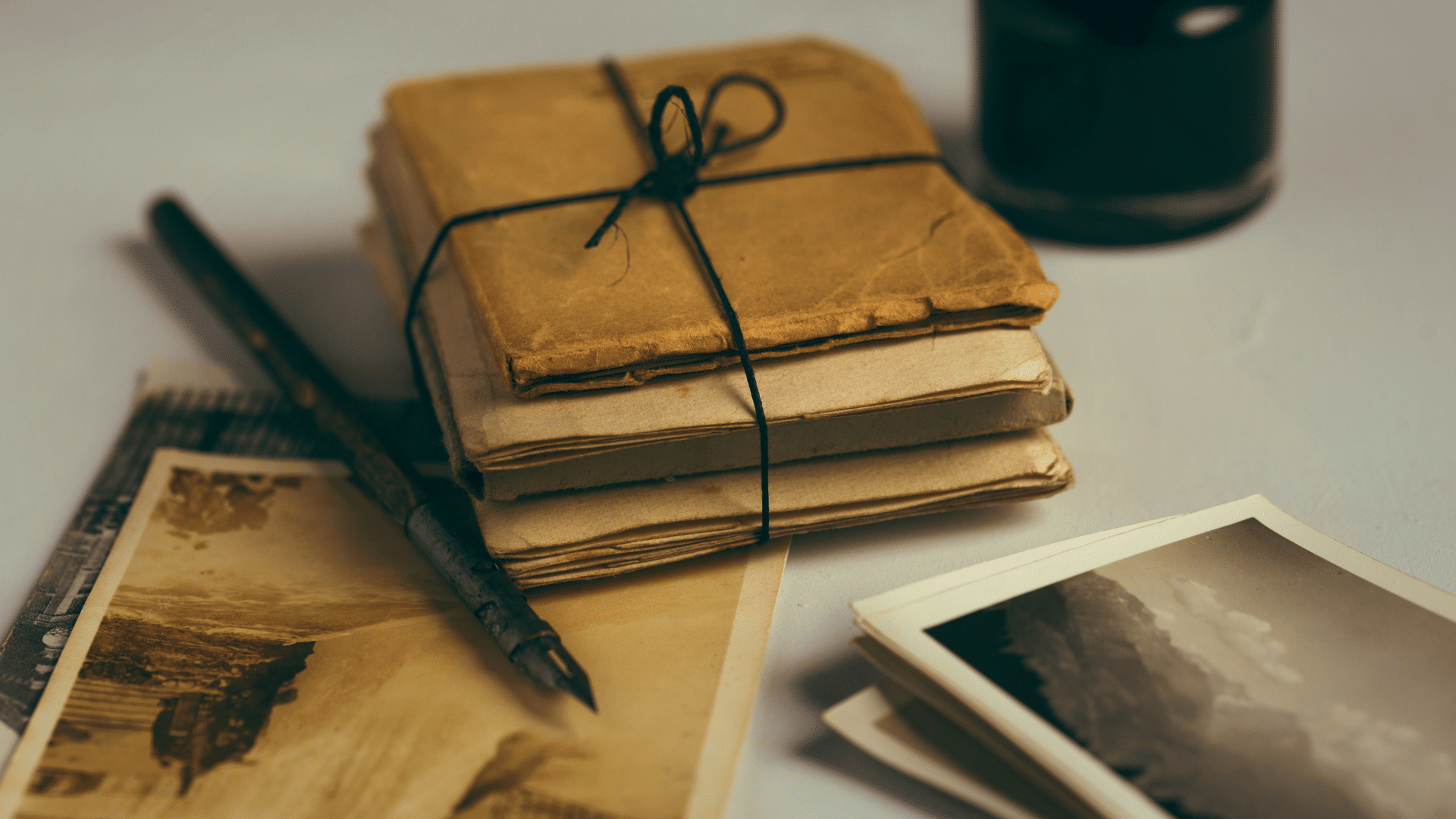
Find your voice
One of the key challenges you have as a historical fiction writer is finding a voice that sounds period-appropriate without being obtrusively olde-worlde. You need to be sensitive to the world of your story whilst also appealing to a modern reader. I recommend that you read any text you can get your hands on from the period in which your story is set. Read fiction from the period, of course, but also newspapers, sermons, pamphlets, political speeches, plays. This will help to get your “ear” tuned into the voice and style of your era. To keep your reader immersed in your story and not pulled from the narrative by an incongruous modern word, you can check a dictionary to see if a word would have been around in your chosen era.
You will also have to decide on whether to use first-person or third (it is rare for historical fiction novels to use the second-person “you” voice, though they do exist). It is possible to combine first-person and third-person narratives in one novel. Doing so varies the tone and allows you to fit the mood of your writing to the subject matter. In my novel, Peculiar Ground (2017) set partly in the 1660s, part of the story-telling is done by Mr Norris – a landscape designer who has been employed to plan a garden and park for a returned royalist nobleman. Later in the novel, in 1665, the plague reaches the neighbourhood. I used a third-person narrator and a very plain, cool measured voice which felt appropriate for such a sombre theme. Shifting point of view also allows us to know the characters from both inside and outside – to understand and sympathise with them at one moment, and then to observe them dispassionately. This oscillation between interior and exterior can be very useful to an author. It is a means by which you can repeatedly adjust your readers’ feelings about the characters and their actions.
Centre your story in your setting
You want the setting of your story to fade into the background of your narrative as your reader follows your protagonist. Look at paintings (if they exist, or photographs if your era isn’t in the so distant past). Look beyond the main subject-matter and notice the backgrounds – the landscape, the buildings, the horse and cart or old cars, the peasants working in the distant fields.
An exercise I suggest in my beginner level historical fiction course is to think of a journey you often make and then reimagine this from the perspective of the period in which you have chosen to set your story. Think not only about the practicalities (perhaps without modern technology the journey may take days, rather than hours) but also how the experience of taking the journey would differ.
Think carefully about who will be your leading character
There are pros and cons to choosing a known figure from your chosen era. If you pick a major historical figure you will have lots of material to work with, and you’ll be able to answer almost all of your questions about the figure using newspaper articles and existing biographies. However, your reader may also be party to this wealth of information and you can feel bound by a need for true historical accuracy. In the case of a historical novel, decisions like these will determine the relationship between capital-H ‘History’ – the kind the reader is likely to already know – and the story you are writing.
Remember you are writing a work of fiction, and if your protagonist is lesser known or even an imaginary figure you will be more free to explore the subject matter at hand. If you are planning to write from the perspective of a known figure, it can also be helpful to imagine how a bystander might have witnessed a key moment in their lives. Think about how differently the reader will react to this account coming from someone who is not a big historical name.
Finally, do lots of research, then forget it!
If you write with your notes in front of you, you will feel bound by the facts and a need for accuracy, and you won’t be able to progress with your narrative. Seep yourself in your period and then let your imagination take over! You can check for anachronisms later, once you have finished your first draft.
As a final exercise, write a letter from one of the characters in your historical fiction novel to another. This might be describing a key moment in their lives, or simply a mundane tale of everyday routine. Try to incorporate each of the four tips I’ve provided here – choose whose perspective you’re writing from and whether they are your leading character or a bystander to the action; ensure that you’re using setting to ground your reader in the period, as well as using period appropriate language; and finally discard your research notes until you’ve finished your letter.
 Lucy Hughes-Hallett is the author of five books – two works of fiction and three of non-fiction. Her book The Pike, a biography of Gabriel d’Annunzio, won all three of the UK’s most prestigious awards for non-fiction – the Duff Cooper Prize, the Samuel Johnson Prize (now renamed the Baillie Gifford Prize) and the Costa Biography Award. It was chosen in the Observer as ‘the biography of the year’ and in The Sunday Times as ‘the biography of the decade’. Her historical novel Peculiar Ground was set in a big house in Oxfordshire, partly in the 1660s, partly during the Cold War. The Guardian’s reviewer described it as ‘Tolstoyan in its sly wit and descriptive brilliance’. Roddy Doyle wrote, ‘it gripped me from start to end. I abandoned work and family to finish it.’
Lucy Hughes-Hallett is the author of five books – two works of fiction and three of non-fiction. Her book The Pike, a biography of Gabriel d’Annunzio, won all three of the UK’s most prestigious awards for non-fiction – the Duff Cooper Prize, the Samuel Johnson Prize (now renamed the Baillie Gifford Prize) and the Costa Biography Award. It was chosen in the Observer as ‘the biography of the year’ and in The Sunday Times as ‘the biography of the decade’. Her historical novel Peculiar Ground was set in a big house in Oxfordshire, partly in the 1660s, partly during the Cold War. The Guardian’s reviewer described it as ‘Tolstoyan in its sly wit and descriptive brilliance’. Roddy Doyle wrote, ‘it gripped me from start to end. I abandoned work and family to finish it.’
Lucy is also an NCW Academy online course tutor. We have courses in writing fiction, crime, memoir, scripts, romantic fiction, creative non-fiction and poetry. Find out more →
You may also like...
Five tips for ‘setting’ the setting
A well-conveyed setting can transport readers into the world of your story like a magic carpet. In this article, writer and NCW Academy tutor Melissa Fu shares five things to consider when ‘setting’ the setting.

7th August 2023
Marie Guyart and Julian of Norwich
Author Juliette Bernatchez explores the lives of historic women writers of Québec and Norwich

7th March 2023
Five top tips for writing historical crime fiction
From Nicola Upson, author of ‘An Expert in Murder’

2nd August 2018






